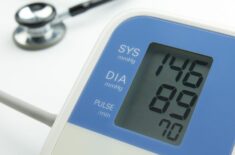Overview
It’s estimated that 11% to 38% of pregnant women experience constipation. (1)
Many factors in a woman’s pregnancy can contribute to symptoms of constipation.
Read on and learn more about how to naturally and safely manage constipation in pregnancy.
We’ve got useful tips to prevent and manage this annoying prego symptom, and even a delicious and effective recipe for you to try.
What Causes Constipation During Pregnancy?
Some common causes of pregnancy constipation are:
1. The pregnancy hormones progesterone and relaxin.
Progesterone can cause constipation because it relaxes your intestinal muscles and slows down the movement of food and waste in your digestive tract.
Relaxin is detectable at around 7-10 weeks of pregnancy. Like progesterone, it relaxes the muscles, joints, and ligaments to allow room for the growing baby and in preparation for birth.
2. Your growing uterus.
Your ever-expanding uterus may put pressure on your rectum and lower intestine. This pressure can make it harder for you to pass stool. (2)
3. Calcium, iron, and aluminum in medications or supplements.
Taking calcium or iron supplements, prenatal vitamins with these minerals, or using antacids with aluminum or allergy drugs may include constipation as one of their side effects. (3) (Note that aluminum can be toxic, so try to avoid aluminum-containing antacids and medications, especially during pregnancy.
4. Fiber and dehydration.
You’re at higher risk for constipation if you’re not including enough fiber in your diet and not drinking enough water. (4)
Constipation Symptoms
Whether you’re pregnant or not, passing stool less than three times a week is a significant sign or symptom of constipation.
Besides infrequent bowel movements, there may be other symptoms like:
- Abdominal pain or cramping
- Painful bowel movements
- Dry or hard stools
- Sluggish or bloating feeling
- Feeling that you haven’t completely emptied your bowels
It may be chronic constipation if symptoms are more severe and last for several weeks or longer without relief. (5)
It may be comforting to know that the chances of having fecal impaction because of constipation in pregnancy are rare. (6)
Chronic constipation can cause fecal impaction, which is characterized by dry, hard stool that becomes stuck in the rectum or lower bowel.
In its extreme version, chronic constipation might include more severe symptoms like:
- Back pain
- High or low blood pressure
- Fever
- Confusion
- Dehydration
- Swollen, hard belly that may or may not be painful
- Loss of appetite
- Headache
- Difficulty in passing urine
The Link Between Constipation and Hemorrhoids
Straining during bowel movements due to constipation may cause hemorrhoids.
Hemorrhoids, or piles, are enlarged blood vessels in and around your anus and the lower rectum. They can appear or worsen with constipation because of the continuous pushing or straining on the rectum. (7)
Symptoms of hemorrhoids include:
- Bleeding after passing stool
- Skin sticking out during bowel movement
- Itching or pain in the anal area
- Pain during bowel movement with mucus discharge
When Does Constipation Generally Start In Pregnancy?
Constipation is common as early as the first trimester of pregnancy since progesterone levels have already started rising. (8)
When Can I Expect Constipation To End While I’m Pregnant?
Constipation may continue up to the third trimester as the fetus grows and adds pressure to your abdomen. (9)
According to ACOG (American College of Obstetricians and Gynecologists), constipation is also common near the end of pregnancy. (10)
15 Natural Remedies & Lifestyle Changes For Constipation Relief
How Can I Relieve Constipation During Pregnancy?
Try these natural and safe remedies:
Eat more fiber
Consuming 20 to 35 grams of fiber daily is recommended whether you’re pregnant or not. (11)
Fiber can’t be broken down into sugar, so it passes through the body undigested. It can also help regulate hunger and blood sugar.
Insoluble fibers don’t dissolve in water and can help move food through your digestive system. (12)
Since fiber absorbs water, you should also increase your water intake to enhance the effects of fiber in relieving constipation. (13)
Psyllium husks, a natural laxative, are a form of fiber recommended to manage constipation and are generally considered safe for pregnancy. (1)
Psyllium increases the size of your stool and encourages bowel movements, thus relieving constipation.
You can usually find psyllium husks at your local natural or health food store in the form of powdered supplements.
There are also over-the-counter options and even prescription drugs that contain psyllium husks.
Check with your doctor before using a psyllium-containing medication, especially if you’re pregnant or breastfeeding.
Reduce or avoid refined or processed foods
Refined grains in bread, white rice, pasta, and cereals are low in dietary fiber. Low fiber eating may increase your risk of constipation.
Stick to an anti-inflammatory diet 80% of the time
Since inflammation in the digestive tract may contribute to or worsen constipation, sticking to an anti-inflammatory diet can help prevent and alleviate the swelling.
The diet usually includes:
Foods rich in Omega-3 fats
- Low mercury fish like salmon and cod
- Walnuts
- Chia seeds
- Flaxseeds
- Plant oils, like olive oil and hemp oil
Antioxidants
- Sweet potatoes
- Blueberries
- Blackberries
- Cherries
- Oranges
- Collards
- Kale
- Spinach
Probiotics
- Yogurt
- Sauerkraut
- Kimchi
- Kefir
- Kombucha
- Miso
Fiber
- Well-cooked legumes like beans and lentils, if you can tolerate them
- Fruits and vegetables with the skin on them
- Gluten-free whole grains like rice and oats, if you can tolerate them
Choose smaller meals over big meals
Instead of having big meals, try to spread out smaller meals in a day. Large meals may slow down bowel transit times and keep food in your digestive tract longer.
Mindful eating might also help with constipation symptoms because it can help reduce overeating tendencies.
Don’t hold your bowel movements – go when you need to
When you suppress bowel movements even just once, your stool enlarges and hardens, causing constipation. (14)
Regular bowel movements are something you should pay attention to for optimum health. Prune juice, olive oil, MCT oil (medium-chain triglyceride oil), lemon juice, stewed apricots, and especially ample water intake can help.
Stay hydrated
Aim to consume a minimum of 1.5 to 2 liters of water per day. This, combined with a daily intake of 20-35 grams of fiber, can increase stool frequency, especially if you’re experiencing chronic constipation. (13)
Consume lots of prebiotics
Prebiotics are dietary fibers found in some foods. These fibers serve as food for the good gut bugs in your digestive tract.
Prebiotics can be found in foods like:
- Acacia fiber
- Potato starch
- Leeks
- Artichokes
- Asparagus
- Garlic
- Onion
- Green banana
- Chicory root
Check with your doctor because prebiotics may not be recommended for everyone since they might worsen constipation for some people, like those who suffer from IBS. (15)
Practice belly breathing
Your breathing may also suffer as your baby grows inside your belly.
Your internal organs, lungs included, are being pushed upwards and squeezed, thereby putting pressure on your diaphragm.
Belly breathing, or diaphragmatic breathing, creates a calming action that soothes your nervous system while gently massaging your internal organs and intestines.
This exercise can relieve abdominal pain, including symptoms of constipation.
You can use this breathing exercise to calm and massage your system while sitting on the toilet as you attempt to pass stool. Check out the link above.
Take a daily, high-quality probiotic and consume fermented foods
Probiotics come in supplement form, but they can also be found naturally in certain fermented foods like:
- yogurt
- sauerkraut
- kimchi
- kefir
- kombucha
- miso
Probiotics are generally safe for pregnant and breastfeeding women. (15)
Your body is host to billions of microorganisms like fungi, yeasts, and bacteria.
Many of these organisms actually help your body function properly and optimally.
Your gut microbiome is an important part of digestive health.
Probiotics are good bacteria and can help keep your digestive tract healthy while helping to ease symptoms of constipation.
Manage your stress and anxiety
There are many ways to manage your stress and anxiety, such as:
- Deep or belly breathing
- Exercise
- Getting enough rest
- Meditation
- Getting into a new hobby
- Connecting with friends
- Yoga
Simply find what works for you.
Your gastrocolic reflex, which is responsible for making you feel the urge to go to the bathroom, is suppressed when you’re stressed or anxious. (16)
So keep calm if you want to regulate your bowel movements.
Strengthen your pelvic floor muscles
Pelvic floor exercises, or kegel exercises, may help you control your bowel movements. (17)
These exercises help improve the strength of the muscles in your pelvic area for improved bowel and bladder control.
They’re also an excellent way to help accommodate your ever-growing pregnant body.
Make a spa smoothie and add acacia fiber for a tasty, delicious, and fiber-filled treat
Try making our signature spa smoothie recipe right at home.
It’s nutrient-packed, high in fiber, vitamins, and minerals for your overall wellness.
Check out the link above.
Check your current supplements and medications
Be sure to also check your current pregnancy supplements or medications because they could also be causing your constipation.
If you’re using iron supplements, you may want to ask your doctor and opt for ones that have ferrous bisglycinate in them. This substance may cause fewer gastrointestinal tract side effects. (18)
Other medications that can cause constipation include (19):
- Antacids with aluminum and calcium
- Antidepressants
- Antihypertensives
- Antipsychotics
- Diuretics
- Opiates (pain relievers)
Move your body regularly
The following activities are generally safe during pregnancy.
- Walking
- Swimming
- Riding a stationary bike
- Low-impact aerobic exercises
- Strength training
- Prenatal yoga
Physically active expecting mamas are more likely to have a lower incidence of constipation compared to sedentary ones. (20)
Talk to your OB-GYN before starting any new or vigorous exercise program during pregnancy.
Take a magnesium supplement
Pregnant and breastfeeding women should take 240 to 480mg of magnesium daily. (21)
A great benefit of magnesium is softened stool which is always good for constipation.
Get your magnesium naturally from foods like:
- Avocadoes
- Nuts
- Legumes
- Seeds
- Gluten-free whole grains
- Green leafy vegetables
Or supplement with a pregnancy-safe supplement like Natural Vitality Calm.
Taking this at night has the bonus effects of relaxing your muscles and supporting better sleep, which are both welcome especially in later stages of pregnancy.
How Much Fiber Should I Be Consuming Daily To Manage Constipation?
Pregnant or lactating women should aim to consume at least 28 grams of fiber per day. (22)
Eat high-fiber foods like:
- Gluten-free whole grains (if you can tolerate them)
- Fresh whole fruits and vegetables
- Well-cooked legumes (like lentils, chickpeas,, and kidney beans)
- Nuts (like almonds, pecans, and walnuts)
Introduce fiber gradually to your diet because adding too much fiber too fast may worsen symptoms of constipation. (23)
What Can I Take For Constipation While Pregnant?
There’s currently limited or inconclusive research on the safety of many constipation medications for pregnancy (1).
Here are some options for pregnancy-safe, over-the-counter supplements and medications that can help you manage constipation while pregnant.
Always consult with your doctor, especially during the crucial first trimester, before using any medication, even if it’s over-the-counter.
Laxatives
There are different types of laxatives, and here are your options for pregnancy-safe ones:
Fiber or bulk-forming laxatives
These can promote the contraction of the intestinal muscles. Insoluble fiber can act as bulk-forming laxatives.
- Metamucil (Psyllium)
- Citrucel (Methylcellulose)
Osmotic laxatives
These draw fluid into the bowel and help with bulky stools.
- Milk of Magnesia (Magnesium Hydroxide)
- OsmoPrep (Sodium Bisphosphate)
- Miralax (Polyethylene Glycol)
Stool softeners
These moisten the stool and make them pass easily.
- Colace (Docusate Sodium)
Stimulants should be taken with caution and with your doctor’s guidance. They may enter the bloodstream in small amounts and can cause stomach cramps. (24)
- Senokot (Senna)
- Correctol (Bisacodyl)
- Castor oil
If You’re Pregnant Don’t Do This – Constipation Medications To Avoid In Pregnancy.
Osmotic and stimulant laxatives (like Senokot or suppositories like Dulcolax) are recommended for short-term use only to prevent dehydration or electrolyte imbalances in pregnant women. (1)
Also, stimulant laxatives may cause uterine contractions and may result in premature labor, and are therefore not recommended. (25)
When Should You Be Worried About Constipation During Pregnancy?
Chronic constipation calls for immediate professional help.
Look out for these warning signs:
- Nausea
- Stomach pain
- Vomiting
- Constipation that lasts for more than 1–2 weeks
- Bleeding from the rectum
- No relief after using a laxative
- Losing weight without trying
- Persistent passing of stool that is pencil-thin
Can Constipation Hurt The Baby During Pregnancy?
According to Dr. Zachary C. Hamilton, OB/GYN at ARC (Austin Regional Clinic) Medical Plaza Specialty, constipation or straining during pregnancy won’t hurt your baby. But it can be painful and uncomfortable for you. (27)
It may lead to anal fissures and hemorrhoids, but these aren’t a serious health risk.
Can Pushing Poop Cause Miscarriage?
If the pregnancy is progressing without issues, constipation and pushing poop don’t usually lead to a miscarriage, according to Dr. Hamilton. (27)(28)
But straining can potentially be dangerous for those with:
- Placenta previa (baby’s placenta is covering mom’s cervix)
- Problems with mom’s cervix
- Other pregnancy complications
REFERENCES
(1)
https://www.ncbi.nlm.nih.gov/pmc/articles/PMC3418980/#:~:text=It%20has%20been%20estimated%20that,bowel%20movements%20or%20difficult%20evacuation.&text=Pregnancy%20predisposes%20women%20to%20developing,changes%20in%20the%20gastrointestinal%20tract
(2) https://www.lifespan.org/centers-services/multidisciplinary-obstetric-medicine-service-moms/gi-issues-pregnancy
(3) https://www.eatright.org/health/wellness/digestive-health/tips-for-preventing-constipation
(4) https://www2.hse.ie/conditions/child-health/constipation-in-pregnancy.html
(5) https://www.mayoclinic.org/diseases-conditions/constipation/symptoms-causes/syc-20354253
(6) https://www.ncbi.nlm.nih.gov/pmc/articles/PMC2967327/
(7) https://www.stanfordchildrens.org/en/topic/default?id=hemorrhoids-and-varicose-veins-in-pregnancy-134-9
(8) https://patient.info/pregnancy/early-pregnancy-signs-and-symptoms#:~:text=Constipation%20is%20more%20common%20in,healthy%20diet%20throughout%20your%20pregnancy
(9) https://www.hopkinsmedicine.org/health/wellness-and-prevention/the-third-trimester
(10) https://www.acog.org/womens-health/experts-and-stories/ask-acog/what-can-help-with-constipation-during-pregnancy
(11) https://www.ucsfhealth.org/education/eating-right-before-and-during-pregnancy
(12) https://www.hsph.harvard.edu/nutritionsource/carbohydrates/fiber/
(13) https://pubmed.ncbi.nlm.nih.gov/9684123/
(14) https://www.nia.nih.gov/health/concerned-about-constipation#:~:text=You%20may%20become%20constipated%20if,interest%20in%20cooking%20and%20eating
(15) https://columbiasurgery.org/news/2017/02/09/what-you-need-know-about-prebiotics
(16) https://www.uofmhealth.org/conditions-treatments/digestive-and-liver-health/diaphragmatic-breathing-gi-patients
(17) https://www.ncbi.nlm.nih.gov/books/NBK549888/#:~:text=The%20gastrocolic%20reflex%20is%20a,with%20the%20ingestion%20of%20food
(18) https://www.bladderandbowel.org/help-information/resources/pelvic-floor-exercises/
(19) https://clinicaltrials.gov/ct2/show/NCT03378791
(20) https://iffgd.org/manage-your-health/diet-and-treatments/medications/medications-that-can-affect-colonic-function/
(21) https://pubmed.ncbi.nlm.nih.gov/23977327/
(22) https://www.omicsonline.org/open-access/supplementation-of-magnesium-in-pregnancy-2376-127X-1000302.php?aid=85899
(23) https://telluridelongevityinstitute.org/warning-signs-of-too-much-fiber-and-risks-of-not-enough/
(24) https://aboutibs.org/treatment/ibs-diet/dietary-fiber/
(25) https://mothertobaby.org/fact-sheets/laxatives/
(26) https://en.pr.ac.rs/wp-content/uploads/i-m-zykq/laxatives-and-pregnancy-side-effects-8bfa2a
(27) https://www.austinregionalclinic.com/news-and-events/article/clinics/can-straining-to-go-when-pregnant-hurt-the-baby
(28) https://patient.info/pregnancy/miscarriage-and-bleeding-in-early-pregnancy












